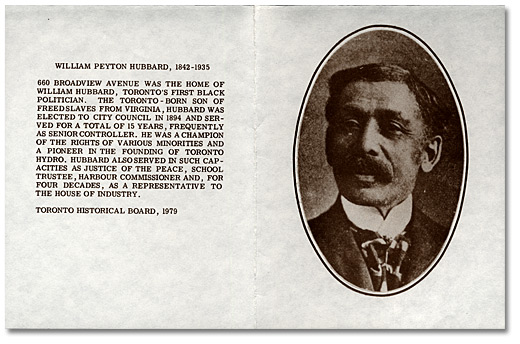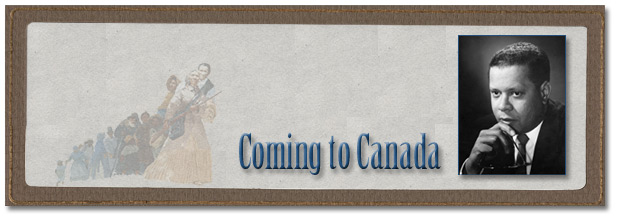
Table of Contents
Work at the Ontario Human Rights Commission | Black History in Canada | Canada’s First Human Rights Consulting Firm | Ombudsman of Ontario | Conclusion | Sources
From his first days in Canada in the early 1950s as an M. A. and subsequently a PhD student at the University of Toronto, Daniel Hill developed an avid interest in the history of Blacks in Canada. His 1960 PhD thesis, Negroes in Toronto, evaluated the history and current situation of Blacks in the city.
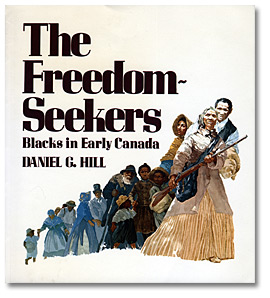
Book cover from, “The Freedom-Seekers:
Blacks In Early Canada”, by Daniel G. Hill, 1981
Archives of Ontario Library
Reference Code: 301.45196071 H54
Archives of Ontario
Reprinted with permission of Nelson, a division of
Thomson Learning, Fax 800 730-2215.
Daniel Hill had always hoped to publish his dissertation. Although he never succeeded with that particular goal, he began to write a steady stream of articles about the history of Blacks in Canada. Eventually, his focus broadened from Toronto to Ontario to all of Canada. In 1981, his book The Freedom Seekers: Blacks in Early Canada was published by The Book Society of Canada. The book became the first history of Blacks in Canada written for the popular reading market, and it remained in print until the demise of its final publisher, Stoddart Publishing Company, in 2002.
The very term, “The Freedom Seekers” reflects the challenge that Daniel Hill faced in trying to find appropriate terms to describe early Black residents in Canada. Rather than accenting the negative fact that many such residents had previously been enslaved, he sought to emphasize their unrelenting desire to win and protect their freedom, dignity and equality-hence, “The Freedom Seekers.”
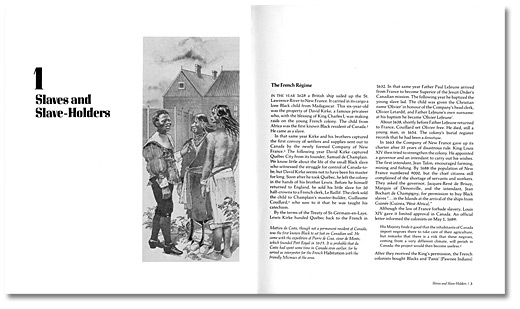
Click to see a larger image (160K)
Pages 2 and 3 from, “The Freedom-Seekers: Blacks In Early Canada”, by Daniel G. Hill, 1981
Archives of Ontario Library
Reference Code: 301.45196071 H54
Archives of Ontario
Reprinted with permission of Nelson, a division of Thomson
Learning:, Fax 800 730-2215.
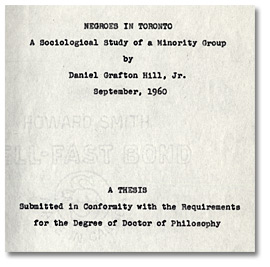
Although The Freedom Seekers became the seminal book that reached thousands of Canadians, the process of researching and understanding the history of Blacks in Canada began with Daniel Hill’s PhD thesis Negroes in Toronto.
Click to view some excerpts from the Thesis (6.9MB)
Cover page of PhD Thesis by Daniel G. Hill,
"Negroes in Toronto: A Sociological Study of a
Minority Group", September 1960
Courtesy of Lawrence Hill
“Black History in Early Toronto” was the address delivered by Daniel Hill to a Black History Conference on February 18, 1978.
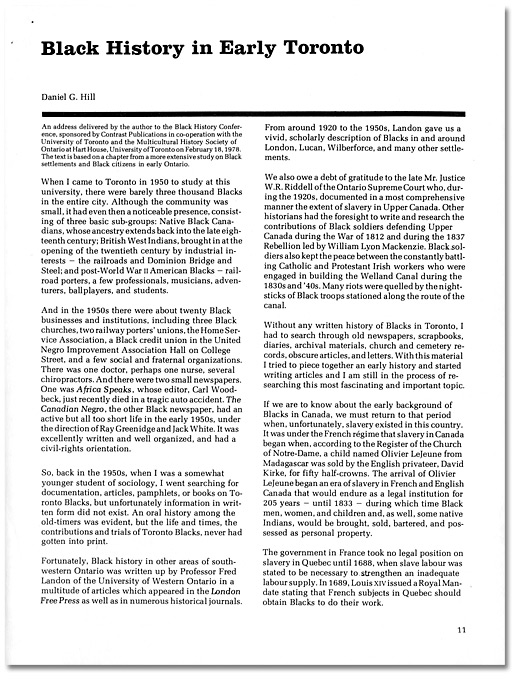
Click to see a larger image and to read the rest of the address (142K)
Address delivered by Daniel G. Hill to the Black History Conference,
"Black History in Early Toronto", February 18, 1978
Daniel G. Hill fonds
Reference Code: F 2130-7-0-6
Archives of Ontario
“A brief pictorial history of Blacks in Nineteenth Century Ontario” was published by the Ontario Human Rights Commission.
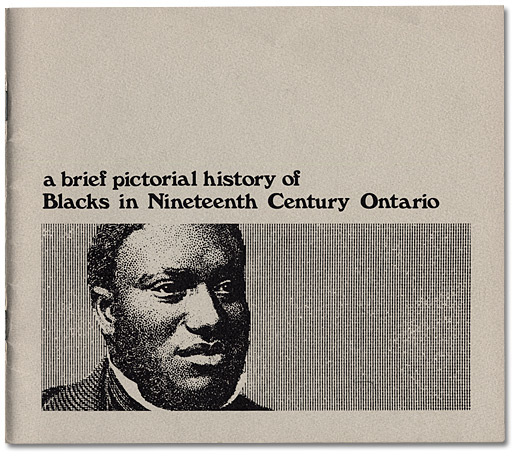
Click to see a larger image (436K)
Cover from "a brief pictorial history of Blacks in Nineteenth Century Ontario",
published by the Ontario Human Rights Commission
Daniel G. Hill fonds
Reference Code: F 2130-7-0-6
Archives of Ontario
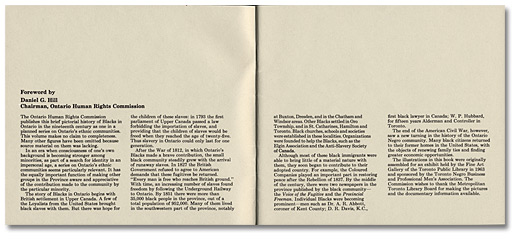
Click to see a larger image (436K)
Foreword by Daniel G. Hill in “a brief pictorial history of Blacks in Nineteenth Century Ontario”,
published by the Ontario Human Rights Commission
Daniel G. Hill fonds
Reference Code: F 2130-7-0-6
Archives of Ontario
Daniel Hill, Donna Hill, Wilson Brooks and other friends co-founded the Ontario Black History Society in 1978. It became the first major public organization in Canada focused on the history of Blacks in the country. Daniel Hill remained at the helm of the Society for about six years.
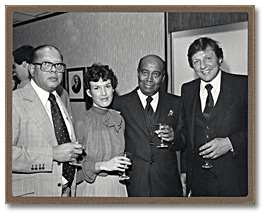
Click to see a larger image (82K)
Attorney General’s reception for the
Ontario Black History Society, February 16, 1981
Daniel G. Hill (left), Lorraine Hubbard (second from left)
and Attorney General Roy McMurtry (far right)
Daniel G. Hill fonds
Reference Code: F 2130-9-1-1
Archives of Ontario, I0027978
Daniel Hill used his social aplomb and contacts to bring the celebration of Black history into the public domain. In 1980, Toronto Mayor Art Eggleton supported the launch of a major Black history exhibit at the St. Lawrence Market in Toronto. Daniel Hill succeeded in discovering and unveiling a portrait of William Peyton Hubbard, a prominent Toronto Black politician in the early 20th century, who had become all but forgotten in the closing decades of the 20th century.
These photographs were taken during a reception that Attorney General Roy McMurtry held for members of the Ontario Black History Society in 1981, three years after Daniel and Donna Hill and four friends founded the organization.
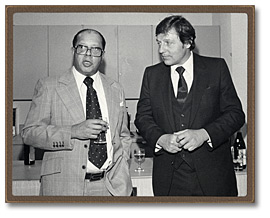
Click to see a larger image (79K)
Attorney General’s reception for the
Ontario Black History Society, February 16, 1981
Daniel G. Hill (left) and
Attorney General Roy McMurtry (right)
Daniel G. Hill fonds
Reference Code: F 2130-9-1-1
Archives of Ontario, I0027977
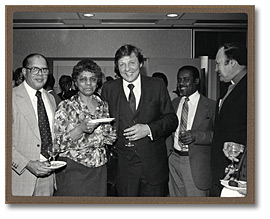
Click to see a larger image (82K)
Attorney General’s reception for the
Ontario Black History Society, February 16, 1981
Daniel G. Hill (left), Penelope Hodge (second from left),
Attorney General Roy McMurtry (middle) and
other attendees
Daniel G. Hill fonds
Reference Code: F 2130-9-1-1
Archives of Ontario, I0027976
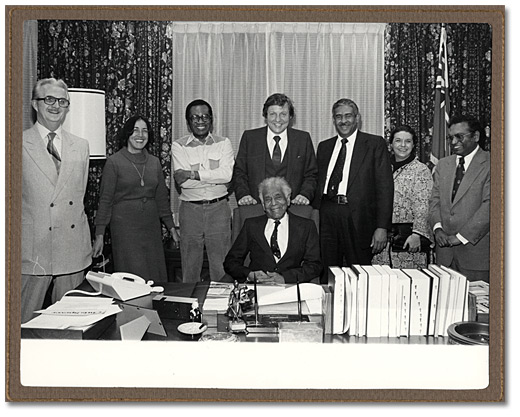
Click to see a larger image (282K)
Attorney General’s reception for the Ontario Black History Society, February 16, 1981
Harry Gairey (seated), Beverly Salmon (second from left),
Attorney General Roy McMurtry (middle) and other attendees
Daniel G. Hill fonds
Reference Code: F 2130-9-1-1
Archives of Ontario, I0027971
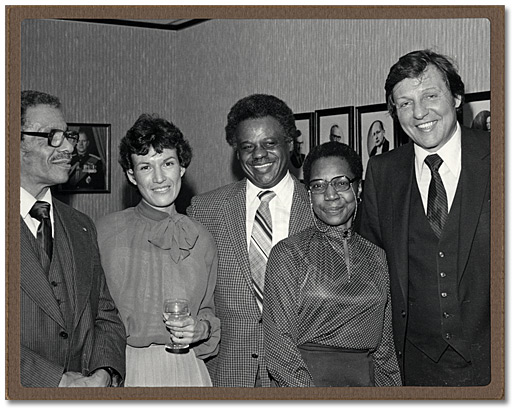
Click to see a larger image (312K)
Attorney General’s reception for the Ontario Black History Society, February 16, 1981
(from left to right) Stanley Grizzle, Lorraine Hubbard, Wilson Brooks,
Rella Braithwaite and Roy McMurtry
Daniel G. Hill fonds
Reference Code: F 2130-9-1-1
Archives of Ontario, I0027974
At the same time that Daniel Hill was working on his own Black history research, Donna Hill was writing about the life of Harry Gairey, a man who had been born in Jamaica in 1898, emigrated to Canada in 1914 and by 1980 become a sort of elder statesman of Toronto’s Black community. In 1981, Donna Hill published a booklet about Harry Gairey’s life for the Multicultural History Society of Ontario.
Like many other writers and historians, Daniel Hill relied a great deal on the people who loved and supported him to produce such a substantial and interesting body of work. He was indebted profoundly to his wife, Donna, who typed, revised, rewrote and edited much of what he wrote. It is not at all surprising that he thanked her in his uniquely colourful way, in an early draft of The Freedom Seekers. The thanks remained in the acknowledgement of the final, published book, but his publisher required him to tone down the humour of his original nod in the direction of his wife. Here unabridged, is how Daniel Hill initially planned to thank his wife for all of her assistance on The Freedom Seekers:
Click to see a larger image (115K) |
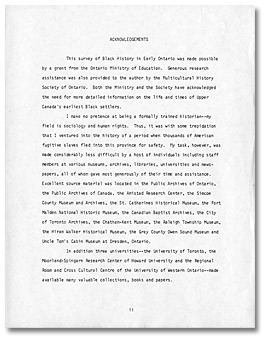 |
To read the complete Acknowledgement from the Freedom Seekers, click here.
In this early draft of The Freedom Seekers, Daniel Hill wrote in some detail about the British governor of Quebec, James Murray, who took command of the British forces after General James Wolfe fell on the Plains of Abraham, and argued that the Black slaves were the only “servants” who could be depended upon. He felt the need for slave labour. Rather than criticizing Murray directly, Daniel Hill quickly sketched the outline of the state of slavery in Quebec and the governor’s words speak for themselves:
“. . . the Quebec slave system passed smoothly into the British regime and the British were eager to maintain the institution. General Jeffrey Amherst of the conquering British forces assured the Marquis de Vaudreuil, the last governor of New France that: Negroes and panis [Indians] of both sexes shall remain in their quality of slaves in possession of the French or Canadians to who they belong; they shall be at liberty to keep them in the colony or sell them . . .”
Excerpt from page 23 in manuscript, |
The guarantee, included by General Amherst in the Articles of Capitulation in Montreal in 1760, undoubtedly was comforting to the deposed governor, who was a slave owner.
In November 1763, General Murray sent an urgent request to John Watts of New York:
|
||
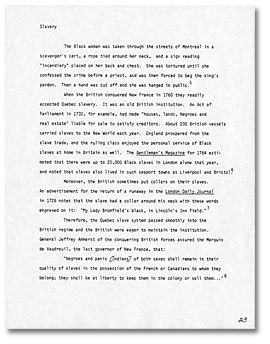
Click here to see a larger image (125K) |
On May 21, 1985, Daniel Hill gave a speech to the York Pioneer and Historical Society and took advantage of the opportunity to mention two distinguished Black Toronto residents of the 19th century: the physician Anderson Ruffin Abbott and the politician William Peyton Hubbard. Click to see a larger image (56K)
|
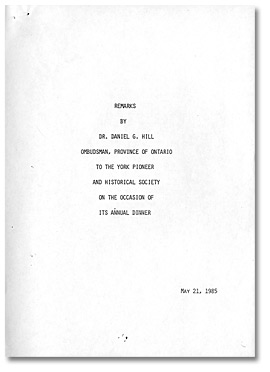 |
|
|
||
The image below shows an invitation to the unveiling of the historical plaque commemorating W. P. Hubbard. |
||
|
|
||
